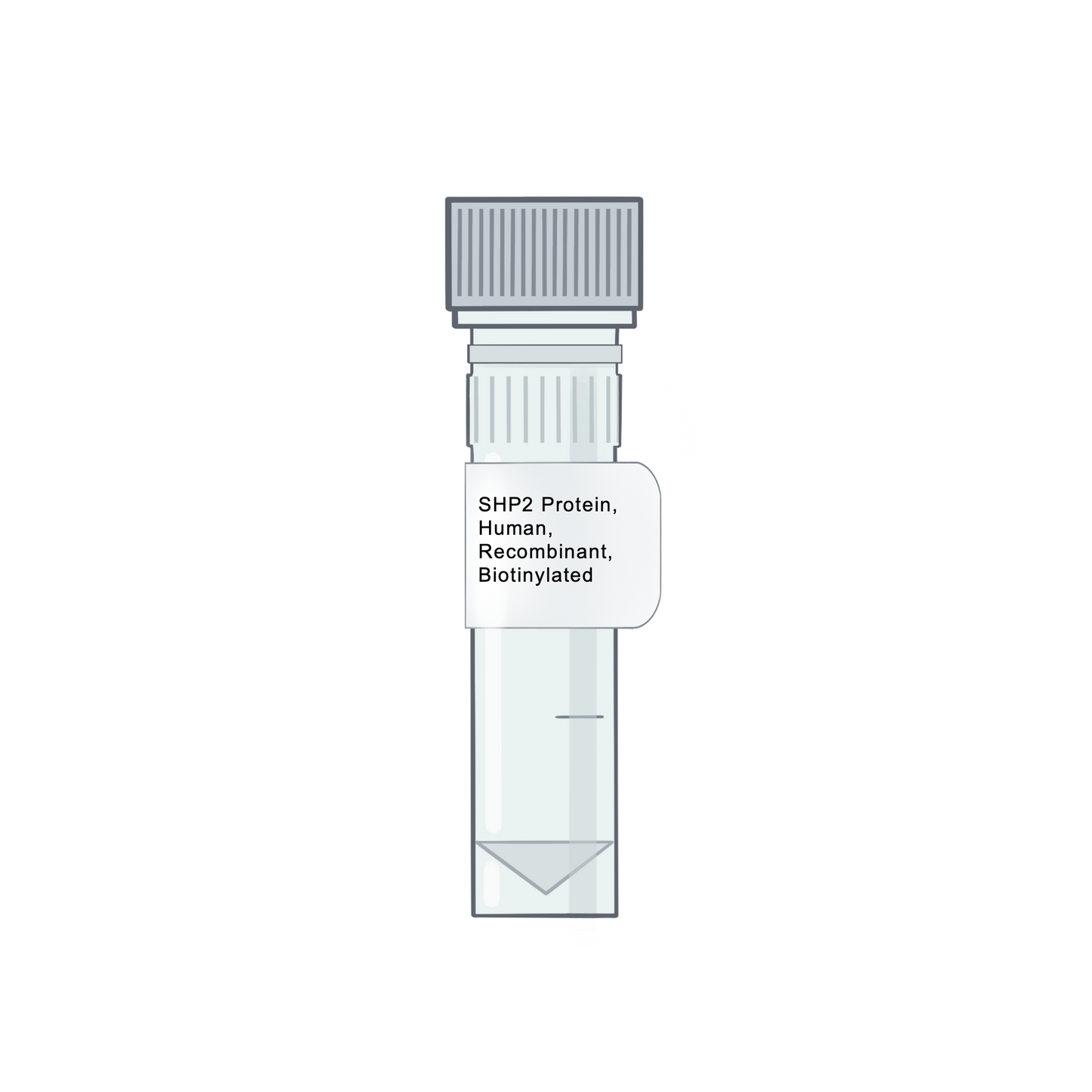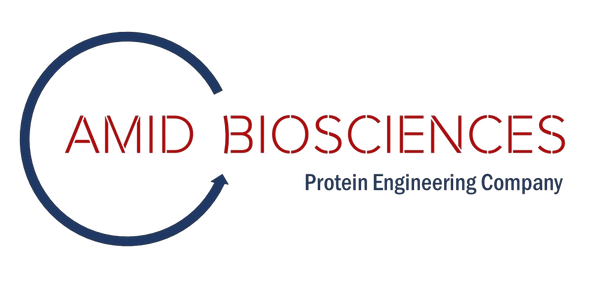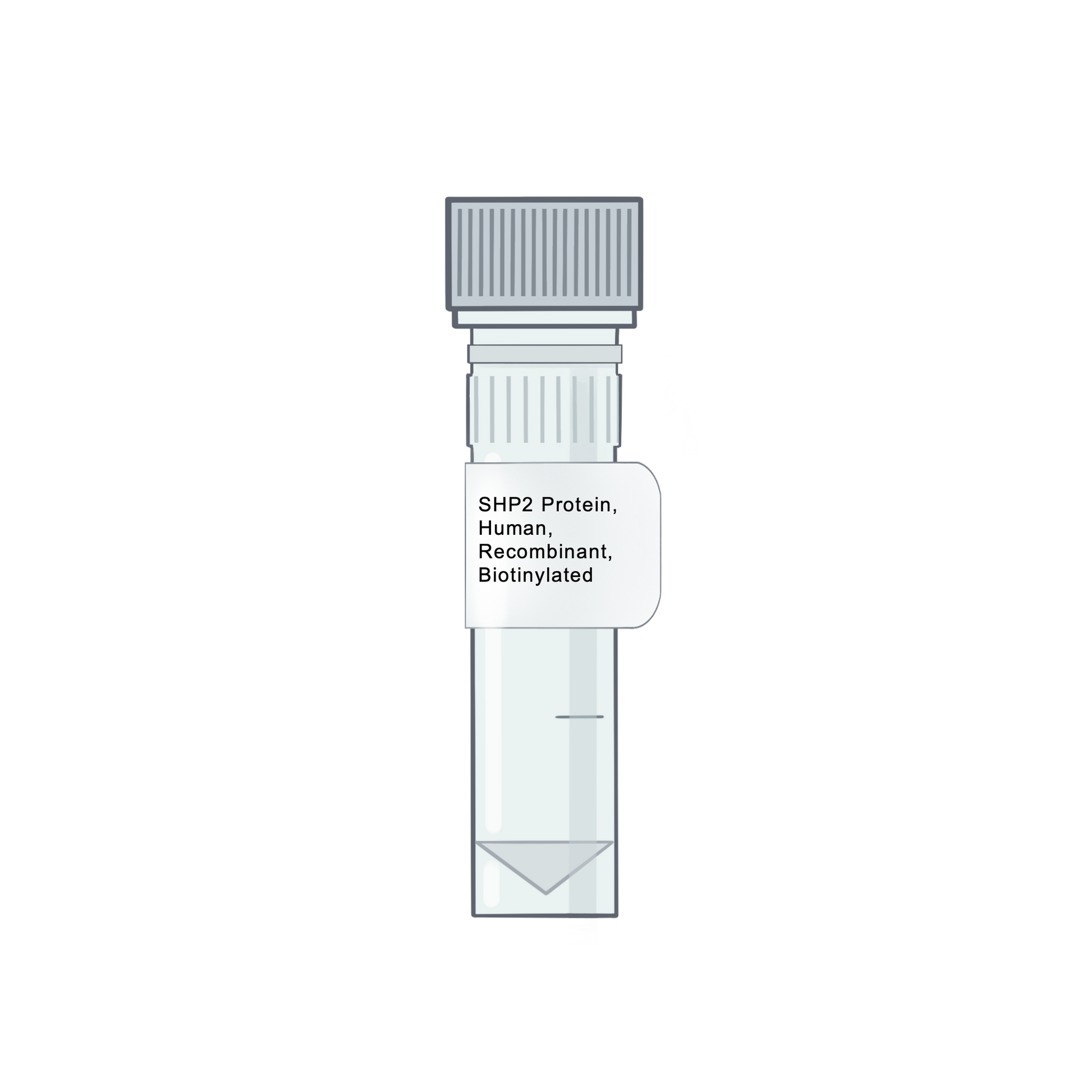SHP2 Protein, Human, Recombinant, Biotinylated
SHP2 Protein, Human, Recombinant, Biotinylated
Couldn't load pickup availability

SHP2, a Src homology 2 (SH2) domain containing non-transmembrane protein tyrosine phosphatase (PTP), is involved in a variety of signal transduction processes, such as the Ras-Raf-MAP kinase, Jak-Stat, and PI3 kinase pathways (1). Experimental data have also indicated SHP2 as a direct activator of Ras and a potential therapeutic target for cancers driven by oncogenic or hyperactive Ras variants (2, 3).
Recombinant SHP2 protein with the N-terminal AviTag™ peptide and His-tag is produced in E. coli cells and site-specifically biotinylated at AviTag with BirA enzyme.
Catalog # SHP2-B-301
This product is for laboratory research use only.
Amino acids: 1-593 of SHP2 (UniProt # Q06124)
Tag(s): The N-terminal 6XHis and AviTag
Storage buffer: 20 mM Tris-HCl, pH 7.5, 100 mM NaCl, 5 mM 2-mercaptoethanol, 0.04 % Tween 20, 20% Glycerol
Concentration: 1.0 mg/mL by A280 (please see specific lot number)
Specific activity: ≥100 pmol/min/μg
Assay conditions: 20 mM HEPES, pH 7.5, 100 mM NaCl, 5 mM DTT, 5 mM para nitrophenylphosphate (PNPP), 30 min at 30°C. Absorbance is measured at 405 nm
Molecular weight: ~71 kDa
Purity: >80% by Coomassie staining
Storage is recommended at -80°C
For Bulk Orders or Custom Packaging: Contact info@amidbiosciences.com
International Shipping: Product requires shipping on dry ice. Please contact info@amidbiosciences.com for shipment estimates.
References:
- QU, C. The SHP-2 tyrosine phosphatase: Signaling mechanisms and biological functions. Cell Res 10, 279–288 (2000).
- Bunda, S., Burrell, K., Heir, P. et al. Inhibition of SHP2-mediated dephosphorylation of Ras suppresses oncogenesis. Nat Commun 6, 8859 (2015).
- Nichols, R.J., Haderk, F., Stahlhut, C. et al. RAS nucleotide cycling underlies the SHP2 phosphatase dependence of mutant BRAF-, NF1- and RAS-driven cancers. Nat Cell Biol 20, 1064–1073 (2018).
Domestic Shipping in the US
Temperature sensitive products requiring shipping/handling on dry ice are shipped via UPS Next Day Air Saver. These products are delivered the next day if your order is placed before 3 PM PST. A dry ice surcharge is included in the shipping cost at checkout. For orders totaling over $1,000, free shipping and handling will be applied to the order.
International Shipping
Orders to be shipped internationally (outside of the US) can be shipped via DHL Express Worldwide or FedEx International Priority. Please contact info@amidbiosciences.com if you would like your company's shipping account to be used for the order. Our customers have sometimes negotiated lower shipping rates than us.
- Choosing a selection results in a full page refresh.
- Opens in a new window.

